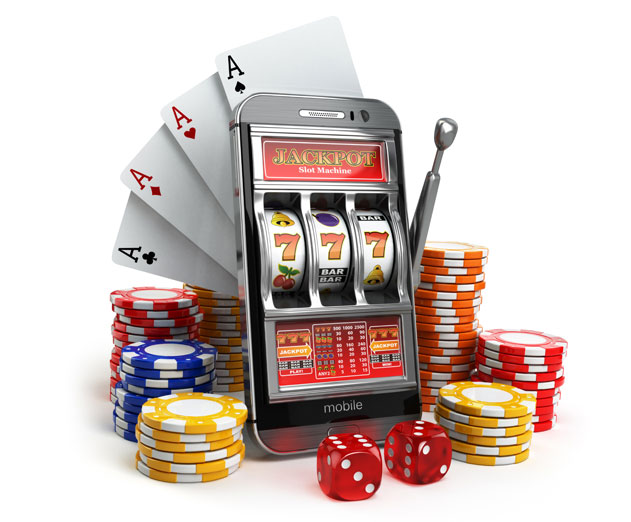Game Development
How to Design Mobile Games to Avoid Anti Gambling Statutes
Wednesday, April 6, 2016

|
David S. Almeida |

|
Mark S. Eisen |
Big Fish Casino, Castle Clash, Double Down Casino, Game of War, Slotomania. These are just a handful of the mobile games that have come under class action scrutiny in the last 18 months as plaintiffs’ lawyers try to convince courts that popular games run afoul of state anti-gambling laws.
This list makes evident that the recent lawsuits are not limited to virtual casinos; numerous lawsuits have been filed against strategy games that allegedly incorporate a limited element of chance (i.e., the ability to win in-game materials).
Each of these games is free to download and free to play, but utilize some aspect of the microtransaction business model - a model that enables the purchase of virtual goods in the game to enhance gameplay. The central allegations in each of these cases are nearly identical: (i) microtransactions convert cash into an in-game currency; (ii) a mechanism to use in-game currency to win in-game enhancements that are distributed by chance; and (iii) the ability to cash out of the game by selling accounts on the black market.
These allegations mimic the deceptively simple elements of pleading a successful claim under state anti-gambling statutes. In order to qualify as gambling, the state laws typically require three elements: (i) a game activated by money or its equivalent; (ii) the element of chance; and (iii) the receipt of a thing of value.
In evaluating the above elements, the recent lawsuits raise two important questions for mobile application developers:
(a) Can in-game items like gems, coins and gold - even if awarded through a game of chance - constitute items of real world value? And,
(b) Can unsanctioned secondary markets create real world value where there would otherwise be none?
Fortunately, the recent cases have answered both questions in the negative, and in so doing provide a blueprint for designing mobile games that combine elements of chance with microtransactions.
A. In-Game Materials and Enhancements as Items of Value
The games at issue in the recent lawsuits generally “award” (in varying circumstances) in-game materials/enhancements like gems, coins, gold, heroes and skills. Plaintiffs’ lawyers have been quick to analogize these materials and enhancements to casino chips - simply a marker for value. Courts, however, have been quick to dismiss this idea.
For instance, Judge James Bredar, who evaluated the Game of War class action in Maryland, pointed out: “there is no real-dollar value attached to ‘gold,’ [or] chips.” Otherwise stated, Judge Bredar noted, “none of the prizes . . . have any freestanding value apart from their contribution to gameplay.”
Judge Matthew Kennelly, who evaluated the Castle Clash class action in Illinois, and Judge Marsha Pechman, who evaluated the Big Fish Casino class action in Washington, reached identical conclusions.
Judge Kennelly, for example, held that “Castle Clash players may be ecstatic when they win rare Heroes, honor badges, gems or shards, but these items have no measurable value.” And Judge Pechman, for her part, held “Big Fish Casino is free to play and there is never a possibility of receiving real cash or merchandise, no matter how many chips a user wins.”
These holdings are directly in line with the only state gaming authority to evaluate this very issue. Specifically, the Washington State Gambling Commission advises that mobile games do not cross the threshold into illegal gambling if the virtual items awarded cannot be converted into something with real world value. Indeed, common sense dictates that the inability to “cash out” for anything of real world value in the game is exactly what differentiates video games from gambling.
Thus far, the courts that have evaluated this issue have reached a uniform conclusion: in-game materials and enhancements have no value if they cannot be “cashed out” in the game.
B. Secondary Markets as a Means to Establish Value
In today’s society, literally anything can be purchased on a secondary market (i.e., eBay). Plaintiffs’ lawyers have taken advantage of this fact in an effort to bootstrap real world value in mobile games where there would otherwise be none. The theory is simple. An account with more virtual gold, for example, is worth more on sites like eBay than an account with less virtual gold. Virtual gold, therefore, must have an ascertainable real world value.
Courts have been similarly dismissive of this concept as a means to establish that virtual, fictional items have real world value.
Specifically, courts have found two factors dispositive on the issue of secondary markets as a means to establish value. First, both Judge Bredar in Maryland and Judge Kennelly in Illinois have held that a secondary market for game accounts does not suffice to establish value for any particular in-game items. In the words of Judge Kennelly, “the amount a player can get for selling his account to another player says little about the values of the individual items . . . contained within that account.”
Second, courts have turned to the game’s terms of use to determine whether the sale of accounts on secondary markets is prohibited by the developer itself. Judges Bredar and Pechman both turned to the Game of War and Big Fish Casino terms of use, respectively, to hold that a secondary market does not create value where the sale of accounts on secondary markets is prohibited by the terms. In Judge Pechman’s words, “allowing Plaintiff and those similarly situated to sue Defendant for damages based on their own breach of contract would be contrary to basic principles of law and equity.”
While using unsanctioned secondary markets to establish real world value has fallen flat thus far, game developers should be prepared to establish more than simply prohibiting the sale of accounts through their terms of use. Developers should also be prepared to prove that they do in fact police these secondary markets and enforce their terms.
Plaintiff’s counsel in the Big Fish Casino case attempted to argue that the prohibition of sale had in fact been waived in light of the alleged failure to enforce. While the plaintiff’s counsel was ultimately unsuccessful in that argument, it remains wise (and easy) to forestall any kind of waiver argument by policing secondary markets.
Gambling lawsuits against mobile application developers are very much in their infancy. Importantly, however, recent case law provides key lessons to which developers should adhere going forward to avoid and defeat these suits:
- Do not enable a mechanism by which consumers can “cash out” through the game for anything of real world value.
- Prohibit the sale and transfer of accounts in the terms of use and strictly enforce this prohibition.
- Concomitantly with the first two points, ensure that the terms of use clearly states that users have no property interest in any aspect of the game, but hold, at most, a nontransferable, revocable license to use the game and in-game elements for personal entertainment only. This adds teeth the first two points.
So long as mobile games are profit-making enterprises, these lawsuits will continue. Thus far, however, as Judge Bredar so poignantly held, the law “does not trifle with play money.”
Read more: http://appdevelopermagazine.com/partner/link/?ref=
This content is made possible by a guest author, or sponsor; it is not written by and does not necessarily reflect the views of App Developer Magazine's editorial staff.

Become a subscriber of App Developer Magazine for just $5.99 a month and take advantage of all these perks.
MEMBERS GET ACCESS TO
- - Exclusive content from leaders in the industry
- - Q&A articles from industry leaders
- - Tips and tricks from the most successful developers weekly
- - Monthly issues, including all 90+ back-issues since 2012
- - Event discounts and early-bird signups
- - Gain insight from top achievers in the app store
- - Learn what tools to use, what SDK's to use, and more
Subscribe here









